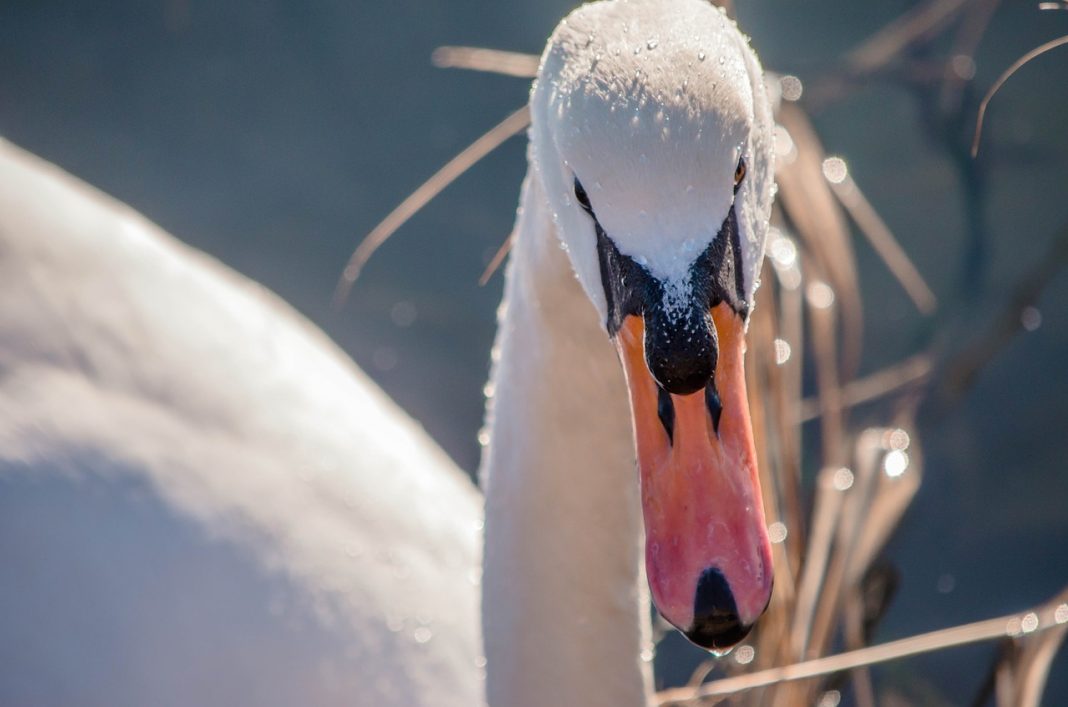A seven year old boy writes a poem about a squawking goose paddling in a pond.
鹅 鹅 鹅
曲项向天歌
白毛浮绿水
红掌拨清波
咏鹅, 骆宾王
Goose, goose, goose
Neck bent, singing to the sky
White feathers floating on green water
Red feet paddling through the waves
Singing Swan, Luo Binwang
Luo Binwang
One of the first poems learned by Chinese children, Ode to the Goose was written by Luo Binwang at the age of seven. In the first line of the poem we hear the goose singing.
The pinyin for goose is a long “e” which would mimic the sound of the goose to a child’s ear. The Chinese character for clear is 清, which may also translate as pure, clean, or still, giving a deeper meaning to the poem that does not readily translate to English.
Again sadly, poetic resonance is lost, as shown by the pinyin translation:
É, é, é
Qū xiàng xiàng tiān gē
Bái máo fú lǜ shuǐ
Hóng zhǎng bō qīng bō
French Translation
Oie, oie, oie
Cou plié, chantant au ciel
Plumes blanches flottant sur l’eau verte
Pieds rouges, pagayer, clair, vagues












